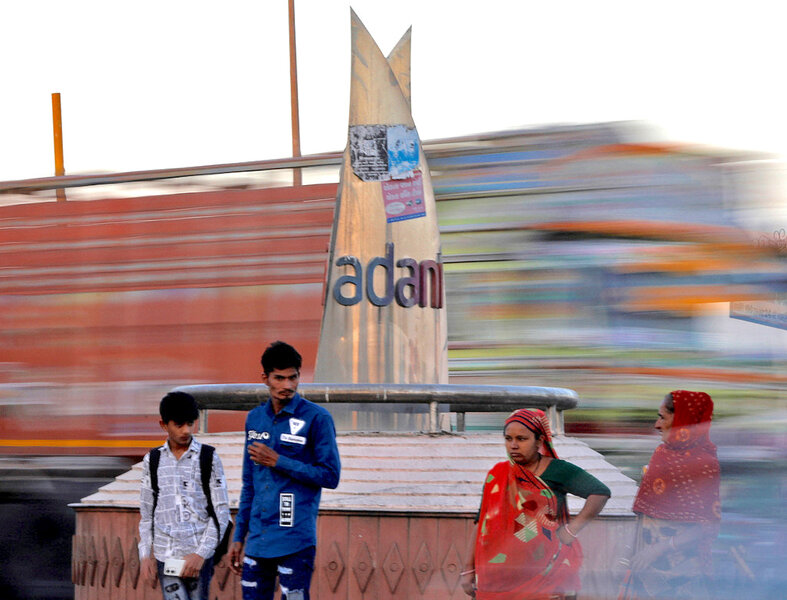A prod for integrity in India
Loading...
More than two weeks after a New York-based financial research firm accused one of India’s largest business conglomerates of “a brazen stock manipulation and accounting fraud scheme over the course of decades,” the country’s major stock exchanges are still seeking balance.
Markets, like horses, scare easily. They need distance to assess what made them bolt. India’s financial regulators have opened at least one new probe into the allegations against the Adani Group, a large-scale infrastructure developer with close ties to Prime Minister Narendra Modi. The group shed roughly $120 billion – half its value – after the report went public on Jan. 24.
But what is already apparent is that the claims against Adani have sent a fresh impulse of integrity through India’s public institutions and civil society. “The lesson for everyone is that we should believe in top class governance and we should open our books and records to everyone in the world,” Amitabh Kant, Mr. Modi’s chief representative to the G-20 group of nations, told Bloomberg.
The two-year forensic study of Adani’s practices by Hindenburg Research comes at a time when international investors regard India, now the world’s most populous country, as a promising alternative to China for its business environment. The report’s conclusions raise new concerns about Mr. Modi’s economic model, which has consolidated lucrative public contracts in a small group of wealthy developers at the expense of local competition and foreign investment.
Those practices may be one reason why public perceptions of corruption are so high in India. The latest Transparency International index, released last month, shows that 89% of Indians say government corruption is a big problem.
The Adani Group and Mr. Modi vehemently deny the claims, and Mr. Modi’s party adjourned Parliament three days in a row amid opposition demands to debate the report. But India’s most important financial institutions have been less dismissive. The heads of the Securities and Exchange Board of India and the Reserve Bank of India have reiterated their commitment to public integrity. Two local stock exchanges have put three Adani Group companies under trading surveillance. The Supreme Court is expected to hear two “public interest litigations” on the report.
The ripples have spread offshore. Norway’s sovereign fund announced it was disinvesting from the Adani Group. The global stock index MSCI, meanwhile, said today it was reevaluating the proportion of Adani Group stocks open to international investors in public markets.
In its most recent assessment of India as a destination for foreign investment, the U.S. State Department noted that “Indian-specific standards not aligned with international standards [have] effectively ... restricted the expansion in bilateral trade and investment.” The scrutiny of the Adani Group casts uncertainty over a broad range of critical infrastructure projects in India.
Yet by casting a light on public integrity, it already had a salutary effect. As Mr. Kant noted in an opinion essay on Feb. 5, “Good governance ... is about empowering people with the tools that will enable them to grow individually and as a community. This requires a capacious and humane public administration.”







